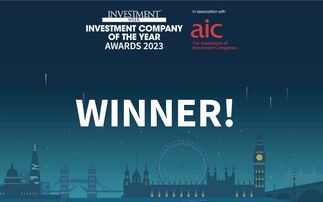The end of the last decade brought with it one of the most difficult years for investors of all hues, but it marked a watershed moment for ESG investing, which moved firmly from the periphery to centre stage. The E (environmental) has been prominent for several years, but it was the S (social) which had the stand out year, also resulting indirectly in greater focus being given to the G (governance).
The pandemic has clearly highlighted the social inequities and injustice that exist within the current global financial and economic system. For example there has been no shortage of scrutiny on global supply chains this past year, with several industries rocked by high profile cases of labour exploitation, including within the fast fashion, FinTech and industrial materials sectors.
Putting people at the heart of investment decisions
But the rise in prominence of social issues has meant that investors are now putting more difficult questions to their investee or potential investee companies on important issues such as labour and business relations, minimum wage, employee training & development and welfare. Human capital, long absent from balance sheets, is now being recognised on par with other more tangible items such as plant equipment and machinery.
This will prove vital as the global economy rapidly moves into its next phase; increased digitalisation, which in no small part has been accelerated by the pandemic. The need to recruit, develop, train and retain human capital will be at the core of resilient business models. This augurs well for ESG investors who give such focus to social issues over the next decade and beyond, where the human capital will not only be a key innovator, but also an important driver of consumer behaviour.
Engagement will remain key to ESG
As the pandemic has changed the way we eat, drink, socialise, exercise, travel, learn and work in a profound and lasting way, this same impact has been felt by many companies; businesses have had to perform a dramatic shift in how they engage with their employers, suppliers, customers and investors.
For the latter group, it has provided an opportunity for responsible and sustainable investors to reinforce the benefits of using an ESG criteria; when making key decisions on investing in companies, but also importantly when engaging with companies on ESG issues and on divesting from unsuitable names. Investors have never had such opportunity to engage with company management on a wide variety ESG issues, and this new and improved alignment of both stakeholders on these issues should help to deliver long-term investment returns to shareholders over the coming decade.
Staying on the right side of changing patterns
Rapid digitalisation across a wide range of industries, from traditional cyclical parts of the economy to the newly emerging sub-sectors remains a key catalyst for ESG investors to watch. The "roaring" 1920s were spurred on by the rapid uptake of electrification in then newly emerging industries and there is every possibility that rapid digitisation by all parts of the current economy will lead to another "roaring 20s" in the upcoming decade.
A more engaged consumer has led to greater changes in consumption patterns, driven in large part by these digital tailwinds. Fortunately for ESG investors, this includes a higher savings ratio which has helped consumers to focus on investing more, and especially in responsible and sustainable funds, where more and more high profile financial institutions have begun to develop a meaningful footprint. There are now a diverse range of providers in the market place allowing investors a greater choice in terms of investment style and philosophy.
This is a positive for the consumer, who will have more choice than ever before. It also brings about increased awareness of responsible and sustainable investing, and adds further momentum to ESG investing in the medium to long-term; comparative to the wider investment industry, ESG is still in its nascent stage and should undergo several growth stages in the coming decade.
Performance issues debunked
The performance of ESG funds in 2020 was another highlight for the sector, with 1 in 5 of all 1st quartile funds in the UK All Companies sector being screened. The performance story is also strong over the longer time horizon, which will help to fight off the age old misguided criticism levelled against ESG funds, where investors were forced to give up performance to keep their values. That whole myth has well and truly been debunked.
Suffice to say, 2021 heralds the start of an exciting new era for the industry, driven by more active and engaged participants entering the market.
Disclaimer
The views contained herein are not to be taken as advice or recommendation to buy or sell any investment or interest. The value of an investment and the income from it can fall as well as rise, you may not get back the amount originally invested. Past performance should not be seen as a guide to future performance. EdenTree is authorised and regulated by the Financial Conduct Authority and is a member of the Investment Association. Firm Reference Number 527473.












